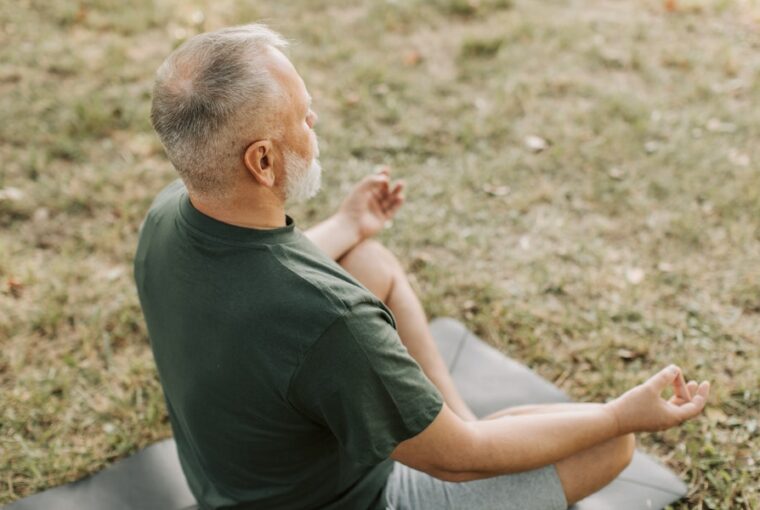Mindfulness and therapy are both powerful tools for promoting well-being. When combined, they can form a holistic approach that addresses physical, emotional, and mental health.
In today’s high-speed society, stress and anxiety have emerged as widespread concerns. Integrating mindfulness practices into TherapyJourney.co can help individuals find balance, enhance self-awareness, and promote positive mental health. By fostering a holistic approach, we can empower individuals to take control of their well-being and lead healthier, happier lives.
Understanding Mindfulness
Discover the essence of mindfulness, a practice that transforms lives. In ‘Understanding Mindfulness, ‘ unravels the profound principles and techniques that lead to clarity, peace, and fulfillment.
The Philosophy Behind Mindfulness
We believe that mindfulness is a journey to cultivate self-awareness, clarity, and wisdom. Its origins trace back to ancient philosophies that prioritize the significance of remaining present and completely immersed in the present moment.
The State of Mindfulness
In the state of mindfulness, our minds are focused, attentive, and free from unnecessary resistance. This allows us to experience moments without judgment, increasing our overall well-being and mental health.
Importance of Awareness and Presence
Awareness and presence play vital roles in mindfulness, as they allow us to fully engage with our surroundings and emotions. Cultivate a profound awareness of our thoughts, emotions, and sensations, nurturing acceptance, personal growth, and the healing process.
Role of Attention and Concentration
Attention and concentration are key components of mindfulness, as they enable us to be fully present and engage with our experiences. By directing our focus, we can effectively navigate through the inevitable challenges and gain insights into our true nature.
Mindfulness Techniques
Unlock the art of inner peace and self-awareness with ‘Mindfulness Techniques.’ Dive into a world of practices and wisdom to cultivate a calmer, more mindful life.
Meditation Practices
Meditation is a key mindfulness technique that helps in managing stress and fostering emotional balance. Through practices like mindfulness-based stress reduction, we can enhance our mental well-being.
Yoga and Its Impact
Incorporating yoga into our routine offers physical and mental benefits. This ancient exercise form helps us develop increased awareness and a sense of calmness, making it an integral mindfulness technique.
Qigong and Bodywork
Qigong, a Chinese practice, combines meditation, movement, and breathing to harmonize our body and mind. Qigong, along with massage and bodywork, can bring about significant improvements in overall mindfulness.
Acupuncture for Mindfulness
Acupuncture, an ancient Chinese practice, can help enhance mindfulness by rejuvenating our energy, thus assuaging stress. Regular acupuncture sessions promote emotional balance and well-being.
Healing With Mindfulness Therapy
Embark on a transformative journey of self-healing through the power of mindfulness therapy. ‘Healing With Mindfulness Therapy’ offers a path to profound emotional and mental well-being.
Individual Therapy
We believe in the power of mindfulness-based cognitive therapy to treat mental health conditions. In individual therapy, we utilize mindfulness techniques alongside traditional psychotherapy methods to facilitate healing and reduce stress.
Family Therapy
Our holistic approach extends to family therapy as we acknowledge the interconnectedness of relationships. By incorporating mindfulness into family counseling sessions, we help foster understanding, empathy, and communication.
EMDR and Hypnotherapy
Eye Movement Desensitization and Reprocessing (EMDR) and hypnotherapy can also benefit from mindfulness. We integrate these therapies to address trauma, anxiety, and depression, supporting the healing process.
Mindfulness-Based Stress Reduction
Our focus on mindfulness-based stress reduction enables clients to navigate life’s challenges with resilience. This approach promotes emotional and mental well-being, improving overall health and life satisfaction.
Role of Emotions and Thoughts in Mindfulness
In ‘Role of Emotions and Thoughts in Mindfulness,’ explore the path to self-awareness and inner peace. Learn ways to manage and cope with emotions and thoughts.
Managing Anxiety
We can use mindfulness to observe our thoughts and emotions, helping us become aware of anxiety as it arises. By acknowledging and accepting our feelings without judgment, we can gain insights into the sources of our anxiety and learn to manage it more effectively.
Coping with Trauma
Mindfulness can be a powerful tool in the healing process for trauma survivors. By practicing mindfulness, we can develop the ability to stay present with our emotions, even when they are difficult or painful. This can support healing by allowing us to process and release traumatic memories and emotions.
Dealing with Depression
Through mindfulness practice, we acquire the skill of observing our thoughts and emotions without assigning judgment or significance to them. This can help us recognize patterns of negative thinking and break the cycle of depressive thoughts, ultimately improving our overall well-being.
Promoting Emotional Intelligence
Mindfulness nurtures emotional intelligence, elevating our ability to identify, comprehend, and navigate our emotions and those of others. As we enhance self-awareness and empathy, we forge healthier, more fulfilling personal and professional relationships.
Health Benefits of Mindfulness
Discover how mindfulness practices enhance mental, emotional, and physical health for a happier, more balanced life. This section guides you through the health benefits of mindfulness.
Improving Physical Health
Mindfulness can lower blood pressure and improve sleep, contributing to better physical health. Practicing mindfulness regularly can help us achieve a balanced lifestyle and enhance overall well-being.
Enhancing Mental Health
We often recommend mindfulness to alleviate anxiety and depression. It aids in developing self-control, objectivity, and affect tolerance, leading to improved mental clarity and emotional stability.
Boosting Immune Function
Engaging in mindfulness exercises strengthens our mind-body connection, positively influencing the immune system. These exercises promote relaxation and stress reduction, supporting a robust immune function.
Managing Chronic Conditions
Regular mindfulness practice can be beneficial for managing chronic conditions by reducing depressive symptoms and increasing adaptability to such situations.
The Relationship Between Mind, Body, and Soul
The Relationship Between Mind, Body, and Soul,’ embarks on a journey of self-discovery and holistic well-being.
Spiritual Growth
In our holistic approach to well-being, we recognize the importance of spiritual growth. This involves deepening our connection to a higher power, exploring our values, and fostering a sense of purpose.
Holistic Wellness
Our approach to wellness incorporates all aspects of life: physical, mental, and emotional health. We believe that by addressing the needs of the mind, body, and soul simultaneously, we can achieve greater overall health and happiness.
Balance and Healing
We understand that achieving balance is crucial for a successful healing journey. By integrating practices to nourish our mind, body, and soul, we can cultivate a sense of harmony and facilitate long-lasting, positive change.
The Role of Compassion and Trust in Therapy
Explore ‘The Role of Compassion and Trust in Therapy’ and discover the profound impact they have on healing and growth.
Forgiveness and Grace
We can practice forgiveness and grace by embracing the natural imperfections in ourselves and others, which fosters an environment of acceptance and understanding. This attitude allows us to heal and grow through the therapeutic process.
Cultivating Gratitude
Cultivating gratitude is essential in therapy as it helps us focus on the positive aspects of our lives. By acknowledging the good, we strengthen our resilience and better cope with hardships, promoting overall well-being.
Building Trust
Building trust in therapy is crucial for a successful outcome. It involves open communication, empathy, and establishing a safe space for sharing our thoughts and emotions. With trust, we facilitate deeper connections and transformative healing.
Professional Training and Development
Elevate your career to new heights through continuous learning and growth. Climb the ladder of success with our comprehensive guide on ‘Professional Training and Development.
Training for Therapists
We focus on providing therapists with comprehensive training in mindfulness techniques, enabling them to incorporate these practices into their therapy sessions. By enhancing their skills, therapists can better support their clients in developing coping strategies, self-awareness, and resilience.
Workshops and Presentations
Our workshops and presentations cover various aspects of mindfulness and therapy, concentrating on practical application and evidence-based research. Participants can gain valuable insights into leveraging mindfulness-based practices within their therapeutic approaches, promoting mental well-being for their clients.
Research and Advances
We continually explore advancements in our field by funding and conducting research on the effectiveness of mindfulness-based therapeutic interventions. A pioneering leader, Chris Gustafson, commitment to innovation ensures that we stay up-to-date with the latest techniques and can provide the highest quality training and support to therapists.
Conclusion
In our exploration of mindfulness and therapy, we have seen the potential of these holistic approaches to contribute to overall mental wellness. Various empirical studies highlight the positive psychological effects of mindfulness, emphasizing its role in enhancing well-being. By incorporating mindfulness in therapeutic practices, we may achieve better outcomes and foster improved mental health for our clients.




